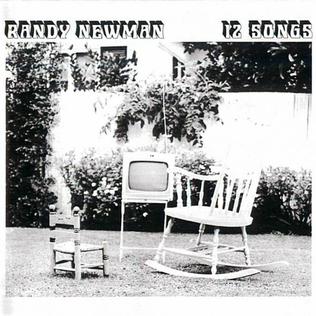
12 Songs is the second studio album by American singer-songwriter Randy Newman, released in April 1970 by Reprise Records. It features a swampy style of roots music with introspective, satirical songwriting. "Have You Seen My Baby?", the album's only single, was released in May.

Bread is the debut album by soft rock band Bread, released in 1969.

The Royal Scam is the fifth studio album by American rock band Steely Dan, released by ABC Records in 1976; reissues have been released by MCA Records since ABC Records was acquired by MCA in 1979. It was produced by Gary Katz. In the United States, the album peaked at number 15 on the Billboard Top LPs & Tape chart, and it has been certified Platinum by the Recording Industry Association of America (RIAA).

Down on the Farm is the seventh studio album by the American rock band Little Feat. The album was completed and released shortly after the death of the band's founder and frontman, Lowell George, in 1979. It was their last original work for nine years. The band had announced their break-up in June 1979 during the making of the album. Little Feat would reform in 1987.

Home Plate is the fifth album by Bonnie Raitt, released in 1975.

Second Childhood is the second album by the singer and songwriter Phoebe Snow, released in 1976. Second Childhood was certified gold by the RIAA on July 9, 1976.

It Ain't Easy is the fourth album by American rock band Three Dog Night, released in 1970.
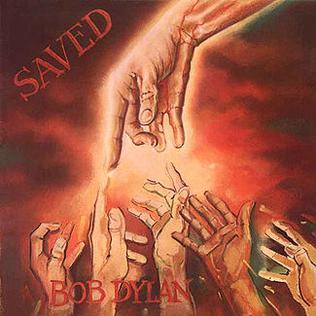
Saved is the twentieth studio album by American singer-songwriter Bob Dylan, released on June 23, 1980, by Columbia Records. Saved was the second album of Dylan's "Christian trilogy". It expanded on themes explored on its predecessor Slow Train Coming, with gospel arrangements and lyrics extolling the importance of a strong personal faith.

Carly Simon is the debut studio album by American singer-songwriter Carly Simon, released by Elektra Records, on February 9, 1971.

No Secrets is the third studio album by American singer-songwriter Carly Simon, released by Elektra Records on November 28, 1972.

Hotcakes is the fourth studio album by American singer-songwriter Carly Simon, released by Elektra Records, on January 11, 1974. Featuring the major hits "Haven't Got Time for the Pain" and "Mockingbird", the latter a duet with her then-husband James Taylor, Hotcakes became one of Simon's biggest selling albums. Her first concept album, the autobiographical songs portray Simon happily married and beginning a family.

Aquashow was the 1973 debut album by singer-songwriter Elliott Murphy. It was reviewed by Paul Nelson in Rolling Stone along with Bruce Springsteen's The Wild, the Innocent and the E Street Shuffle under the headline "He's the Best Dylan since 1968", which earned both artists the "New Dylan" tag. When Aquashow was released on CD in 1988 it was reviewed by Robert Hilburn in the Los Angeles Times under the headline "A Compelling Aquashow", and in 2006, thirty-three years after the original release, the album was called an "Album Classic" in a full-page review in Uncut magazine.

Thanks I'll Eat It Here (1979) is the only solo album by rock and roll singer-songwriter Lowell George. While George is best known for his work with Little Feat, by 1977 Lowell felt that they were moving increasingly into jazz-rock, a form in which he felt little interest. As a result, he began working on his own album. Thanks I'll Eat It Here is an eclectic mix of styles reminiscent of Little Feat's earlier albums – in particular Dixie Chicken, on which the track "Two Trains" originally appeared.
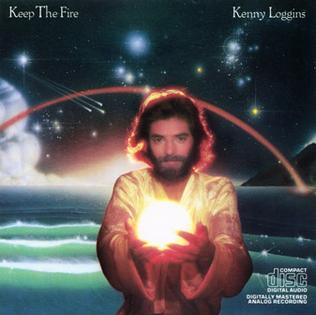
Keep the Fire is the third studio album by American singer-songwriter Kenny Loggins, released in 1979. It is perhaps best known for the hit single "This is It". The song was co-written by Michael McDonald, who also performed on the track. Michael Jackson sings backup vocals on the track "Who's Right, Who's Wrong".

Masterjam is the platinum-selling eighth studio album by funk band Rufus. Released in 1979, it was their debut on the MCA Records label following their purchase and dissolution of ABC Records.

Stingray is the sixth studio album by Joe Cocker, released in 1976. It follows Cocker's pattern of recording mainly cover versions containing just one original song, "Born Thru Indifference". Bob Dylan remained a favourite artist for Cocker to cover with two Dylan songs on this release. Dylan's version of "The Man In Me" appeared on New Morning but "Catfish" would not be released until 1991 on the first volume of The Bootleg Series.

Never Letting Go is the fourth album by singer–songwriter Phoebe Snow, released in 1977.
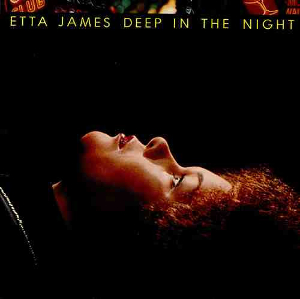
Deep in the Night is a studio album by the American musician Etta James, released in 1978.

Night Lights is the third major label album by singer-songwriter Elliott Murphy produced by Steve Katz and recorded at Electric Lady Studio. It was reviewed by Dave Marsh in Rolling Stone, where he wrote, "In 1973 and 1974 it seemed to many of us in New York that it was a tossup whether Bruce Springsteen, the native poet of the mean streets, or Elliott Murphy, the slumming suburbanite with the ironic eye would became a national hero." The album featured guest appearances by fellow Long Island native Billy Joel and former Velvet Underground member Doug Yule. The cover photo of Murphy standing in Times Square early one Sunday Morning was taken by photographer Michael Dakota although stylised by Steven Meisel. The song "Lady Stilletto" was thought to be an homage to Patti Smith.
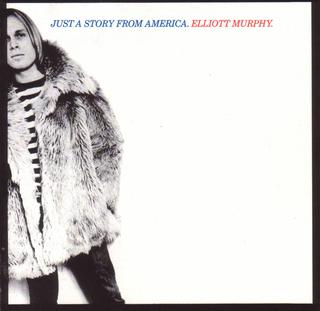
Just a Story from America was the fourth major label album by singer-songwriter Elliott Murphy and was reviewed by Paul Nelson in Rolling Stone. The album was recorded at Air Studios in London in 1976 and featured guest artists former Rolling Stones guitarist Mick Taylor and future Genesis front man Phil Collins on drums. "Anastasia" was a minor hit in France and "Drive All Night" was a hit for the Japanese band The Roosters in 1980.




















